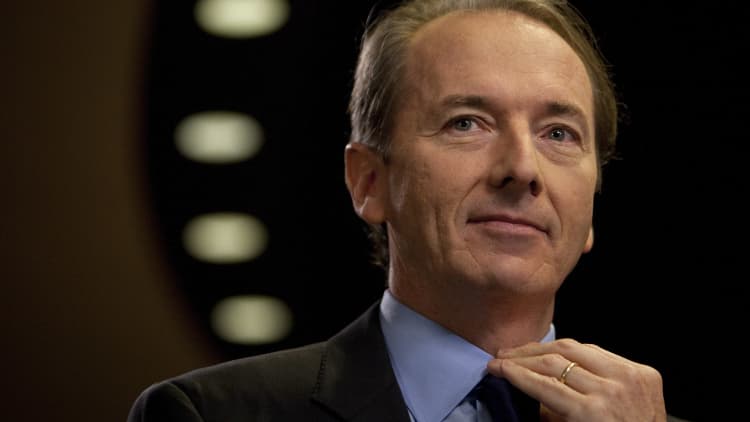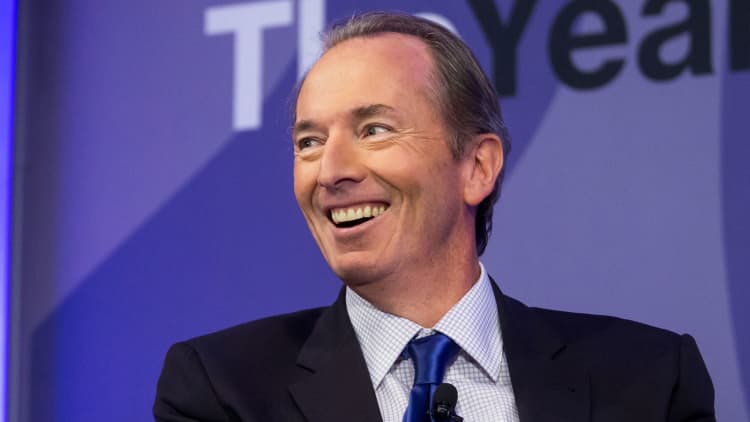
Wall Street has a new bond trading king.
While revenue from fixed income fell during a quiet second quarter, Morgan Stanley still managed to come out looking good. On Wednesday, it said fixed income sales and trading revenue of $1.2 billion fell 4 percent from last year, but that beat the stunning 40 percent drop reported Tuesday by rival Goldman Sachs over the same period.
Morgan Stanley has bested Goldman in fixed income revenue for two quarters now, with $2.9 billion of fixed income trading revenue in the first half of the year versus Goldman's $2.8 billion. It edged out Goldman in the first quarter as well.
Both banks cited a difficult environment in the most recent quarter, with lower client activity. But Morgan Stanley's overhaul of its bond trading business two years ago, in which it cut one-quarter of its bond trading staff and reshaped the business, has paid off despite weak trading conditions.
"We feel pretty good about the results in light of the environment," Morgan Stanley CFO Jonathan Puzon said on a conference call Wednesday.
Goldman's once-mighty commodities trading desk, on the other hand, has stumbled, with its worst quarterly performance on record, helping to weigh on fixed income trading revenue overall. "We know we need to do better," Goldman's CFO Martin Chavez said on a conference call with analysts Tuesday.
Other big banks also had trouble in fixed income trading, with Bank of America reporting a 14 percent decline in revenue from last year, Citigroup down 6 percent and JPMorgan down 19 percent. But Goldman's was the standout.
Analysts had seen Goldman poised to benefit the most from a revival in bond trading, but persistently low volatility has foiled those chances. Chavez admitted on the call that Goldman is struggling with more than just a lack of activity. Its business is focused on trading for active asset managers, with perhaps fewer corporate clients than other firms, he said. Derivatives are a strength but there may be weaknesses elsewhere.
"We're looking to see where there are gaps in our client coverage," he told analysts. "And the ongoing question in every business generally is how can we do better with the clients who are already clients of the firm."
It was the second consecutive disappointing quarter in fixed income for Goldman. Jason Goldberg at Barclays said Goldman's shares could be constrained until the company's executives can articulate "what actions it is taking to rectify this line."
Morgan Stanley has steadily taken on market share in fixed income, currency and commodity trading, according to Keefe Bruyette & Woods. It started out last year with 7.6 percent share and has steadily climbed to 12.1 percent in the first quarter before dipping slightly in the second quarter, to 11.4 percent. But over the same period, Goldman has lost share, dropping from 14.5 percent to 10.4 percent.
KBW downgraded Goldman's shares on the trading revenue miss, rating them a market perform in a note to clients on Wednesday. Even if bond trading rebounds "it is unclear whether the company would be positioned right if revenues increase or whether the right mix of clients sees better activity," the analysts said.
WATCH: Morgan Stanley tops Street, manages fixed income beat


